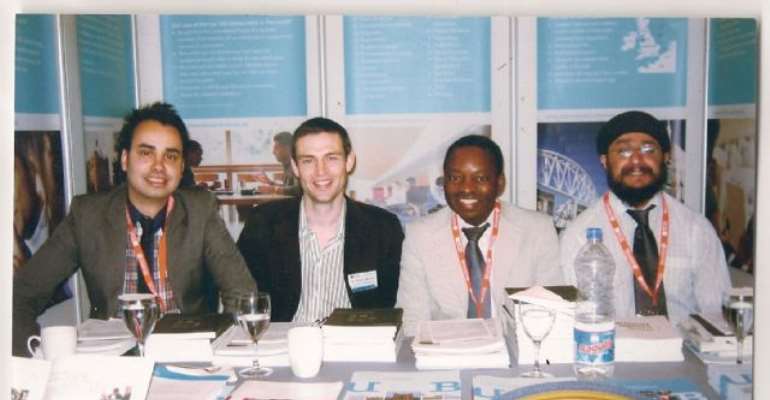African students learn about Birmingham

Students from West Africa interested in studying in England's first civic university – the University of Birmingham, had the opportunity to meet representatives of the University, at the Education UK Exhibition held in Ghana and Nigeria.
The annual exhibitions, organised by the British Council, give prospective students an opportunity to learn more about the University and the courses on offer across the academic schools and departments. This year's event took place in Accra, Kumasi, Abuja and Lagos.
Jugjit Cheema, one of the representatives from the University of Birmingham said: “It is important for international students to choose the right course and the right place of study. The exhibition provides a good opportunity for students and parents to find out what the University of Birmingham and city have to offer.
“The University of Birmingham is particularly popular in the areas of Law, Engineering, and Business and Finance; therefore we have representatives from these academic departments to offer specialist advice.”
The delegation from Birmingham included Dr. Remi Olatunbosun (School of Engineering), Dr. Gavin Byrne (School of Law) and James Minhas (Business School).
The University of Birmingham is one of the most popular universities for Nigerian and Ghanaian students wishing to study in the UK. It offers a broad range of courses at both undergraduate and postgraduate levels.
In the Research Assessment Exercise (RAE) 2008, the University was ranked 12th in the UK. The University is also ranked in the top 100 in the Times Higher Education World University rankings.
The University is home to the Centre of West African Studies - the only such centre in the world. Birmingham was also England's first civic university, where students from all religions and backgrounds were accepted on an equal basis.
University of Birmingham's medical research led to the development of antiseptic surgery and new treatments for scurvy. The University is currently leading work to confront obesity, diabetes and cardiovascular disease, and to develop vaccines for Hepatitis C – a disease that affects more than 200 million people worldwide.
